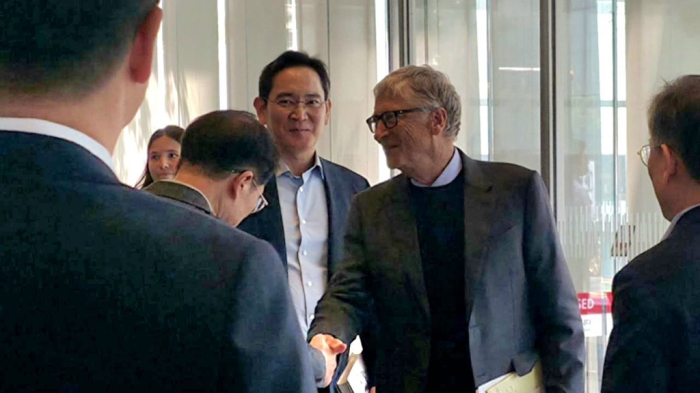
Bill Gates, the Microsoft co-founder-turned-philanthropist, has stepped up his engagement with South Korea’s corporate titans, meeting the heads of three big conglomerates – Samsung, SK and HD Hyundai – to discuss potential collaborations in advanced technology, nuclear energy and global development.
On Friday, Gates met with Samsung Electronics Co. Chairman Lee Jae-yong, also known by his English name Jay Y. Lee, at the company’s headquarters in southern Seoul.
It was their first official encounter in three years.
The two leaders discussed ways to expand corporate social responsibility (CSR) initiatives through the use of Samsung’s cutting-edge technologies, according to people briefed on the meeting.
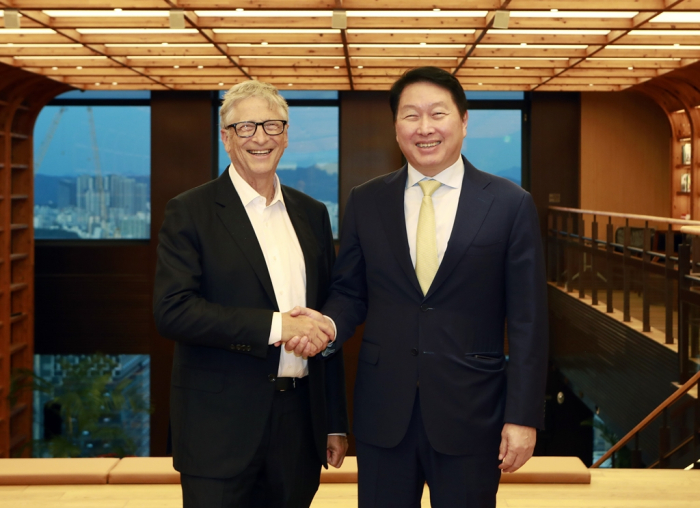
Samsung has supported Gates’s philanthropic projects, most notably through the Reinvent the Toilet (RT) program.
The Bill & Melinda Gates Foundation launched the RT initiative in 2011 to provide safe sanitation solutions in developing countries, later enlisting Samsung engineers to tackle technical hurdles.
The collaboration produced a household-scale system designed for regions lacking sewerage infrastructure or adequate water supplies.
Industry officials said Lee and Gates may have discussed a “second phase” of the initiative.
SMR DISCUSSION BETWEEN SK’S CHEY, GATES
On Thursday, Gates held talks with SK Group Chairman Chey Tae-won in central Seoul, focusing on TerraPower, a US-based small modular reactor (SMR) developer he founded.
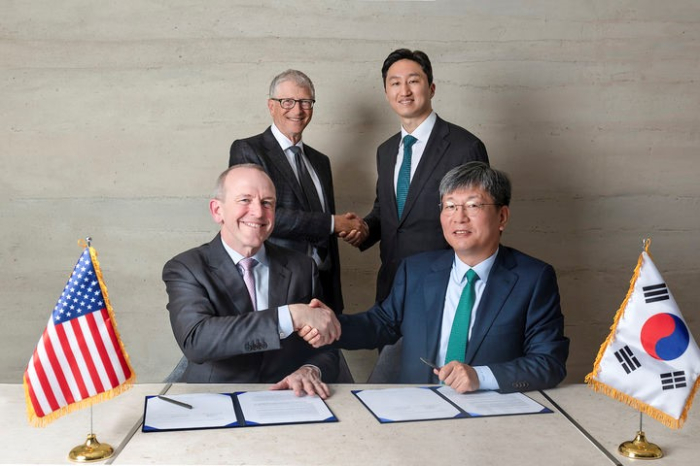
SK is the company’s second-largest shareholder after investing $250 million in 2022.
Chey and Gates discussed commercialization strategies for the technology and the role the Korean industry could play in accelerating SMR deployment, company officials said.
“South Korea and SK can play a critical role in bringing SMRs to market,” Chey said, citing the reactors’ potential to combine safety, efficiency and environmental benefits.
Gates emphasized the importance of regulatory clarity and supply chain readiness in Korea to enable TerraPower and SK to “lead the global market.”
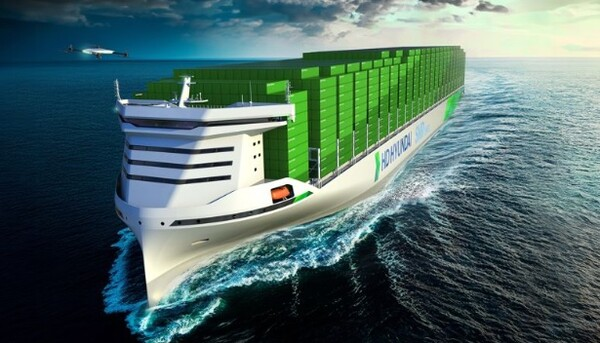
TerraPower is developing sodium-cooled fast reactors (SFRs), part of the fourth generation of nuclear technology, which use liquid sodium as a coolant to convert heat from nuclear fission into electricity.
The US company is building its first demonstration plant in Kemmerer, Wyoming, with a capacity of 345 MW, enough to power 300,000 homes, and aims to complete it by 2030.
TALKS WITH HD HYUNDAI’S CHUNG FOCUSES ON MORE DEALS
On Friday, Chung Ki-sun, executive vice chairman of HD Hyundai Co., the owner of the world’s top shipbuilder, also sat down with Gates to review progress on a supply deal struck last year to provide SMR-propelled vessels for TerraPower’s SFR project.
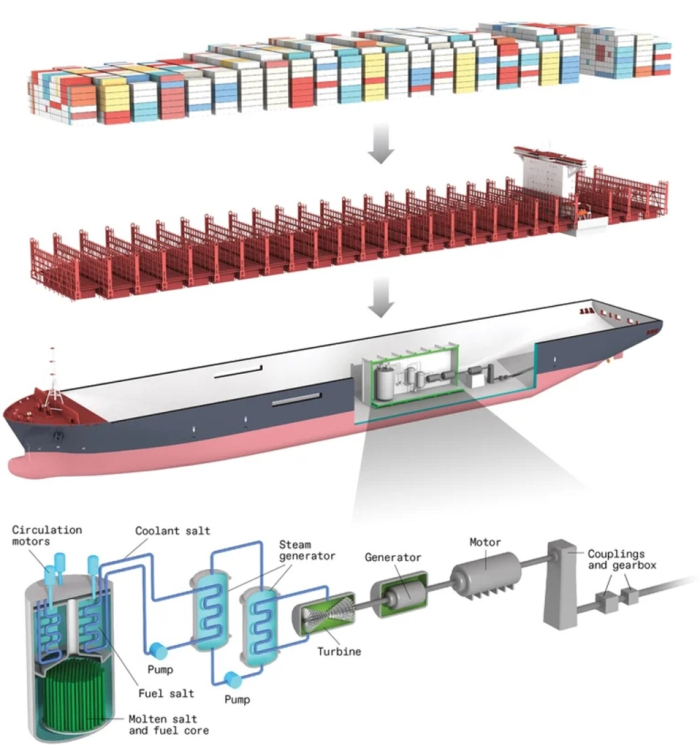
HD Hyundai invested $30 million in TerraPower in 2022 and expanded its stake in June this year.
A Hyundai executive described the meeting as “a mid-term review of its March supply chain expansion agreement”, adding that further deliveries are under discussion.
Analysts said the meetings underscored Gates’s deepening interest in Korea as both a manufacturing hub and a strategic partner for advancing energy and biotech ventures with global implications.
For the Korean conglomerates, closer ties with Gates and his foundation offer not only opportunities in next-generation energy but also a chance to burnish their CSR credentials on the international stage, analysts said.
By Jeong-Soo Hwang and Woo-Sub Kim
hjs@hankyung.com
In-Soo Nam edited this article.















